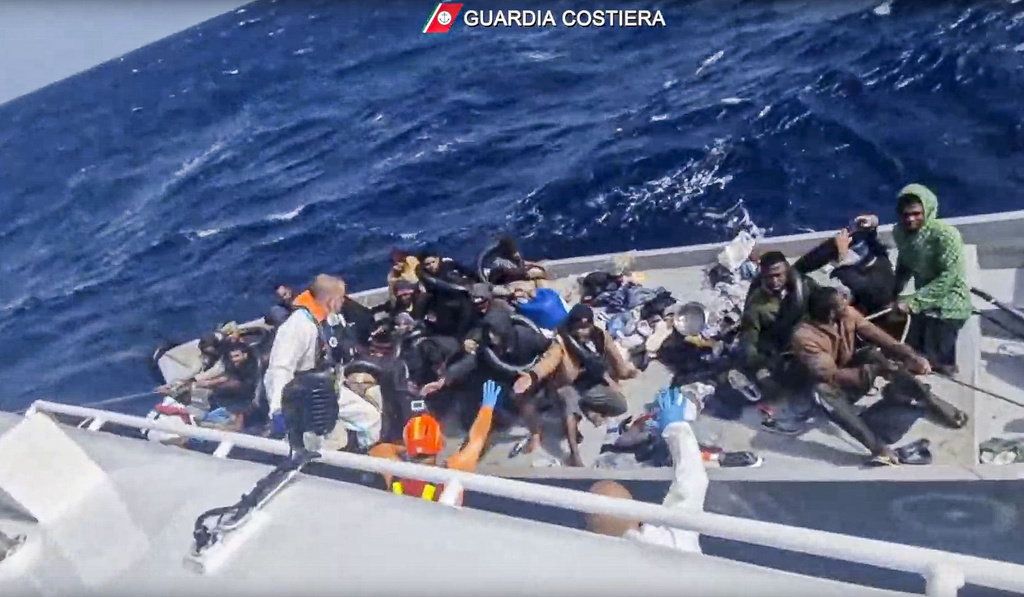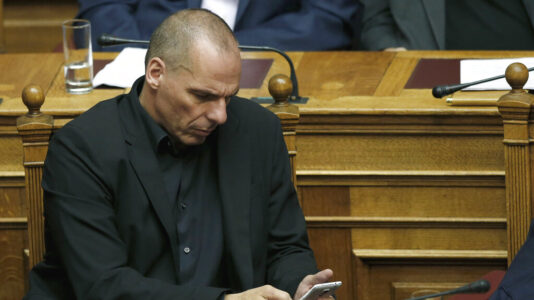The EU migration pact, often misunderstood as merely a policy adjustment, is a significant indicator of the ongoing decline of liberal democracy in Europe, increasingly seen as unsuitable for contemporary challenges.
As political elites in the European Union loudly advocate for the protection of liberal democracy, they simultaneously enact changes that reduce it to a facade, showcasing old ideals while becoming detached from current realities. This facade masks the emergence of new structures aiming to preserve only selectively beneficial elements of liberal democracy.
In Poland, the migration pact is primarily viewed through its solidarity mechanism, which involves distributing individuals with residency rights across EU countries or, alternatively, making payments of €20,000 per non-accepted individual into a solidarity fund. Poland’s Prime Minister Donald Tusk has followed conservative opposition leader Jarosław Kaczyński’s lead in expressing his strong opposition to this aspect, promising that Poland will neither participate in relocations, nor make payments for migrants it chooses not to accept. Meanwhile, the right-wing parties speculate that despite these assurances, Donald Tusk will comply with directives from Berlin, which they believe will ultimately politically benefit them.
Conversely, Western European governments have touted the pact as a success. German Chancellor Olaf Scholz praised it for establishing an asylum system aimed at reducing illegal migration and relieving the burden on countries most affected by it. However, this view contrasts sharply with perspectives from the Global South, as reported by Al Jazeera, which emphasizes the opposition to the pact, including protests and condemnations by over 160 humanitarian organizations. These reports highlight a different facet of the situation, one that stirs resentment towards the West, perceived not as a champion of liberal democracy but rather as a realm of deceit and hypocrisy.
The pact contains several “gates to the future” that reveal its broader implications and the strategic adjustments within the EU. These include the establishment of a unified EU database for biometric information, provisions for indefinite detention of migrants in centers located at EU borders, the transfer of migrants to non-EU countries, and expedited processes for rejecting asylum applications from countries deemed safe.
This migration policy reform is part of a larger transformation in Europe, with traditional liberal democratic values being increasingly sidelined in favor of pragmatic, sometimes nationalist policies. The shift is illustrated by the cooperation between leaders like Italy’s Giorgia Meloni and the EU’s Ursula von der Leyen, who have negotiated agreements with North African countries to control migrant flows in exchange for financial aid and resource exploitation agreements.
These developments are part of a broader strategy to manage migration, which includes plans for large detention centers in countries like Albania, aimed at managing the flow of migrants from the Mediterranean into Europe.
The narrative surrounding these changes does not provoke the same level of political fervor or media attention as might be expected. Instead, the increasing influx of migrants from the Global South into economically strained EU countries has intensified local competition over state resources, such as social benefits and housing, leading to heightened tensions and a shift in voter allegiances from traditional parties to more populist alternatives. This situation has led to a gradual erosion of the welfare state and undermined public trust in the political elite, who are seen as more concerned with maintaining liberal democratic ideals in theory than addressing constituents’ practical concerns.
So, democracy in the Union is becoming more liberal in name only. On the one hand, there is a frantic pace of encoding in legal records its modern symbolism: the right to abortion, protection of minorities with LGBTQ people at the forefront, fighting “discriminatory language,” etc.
On the other hand, there is a quiet suspension of the adherence to its key ideas in everyday life, relating to freedom, freedom of speech, protection of individual rights, and care for human rights against those who are considered a threat to the current order. This includes migrants. We will still witness that, in Europe, democracy (perhaps still called liberal) will change beyond recognition. Unless the Old Continent cannot meet the threats and historical challenges that stand before it.






